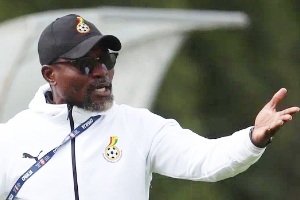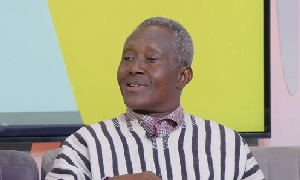Fifty-eight remand prisoners from the Ankaful and Winneba Prisons, on Friday had access to justice under the ’Justice for all Project.’
The prisoners, who had been on remand from six months and 20 years, were made up of 31 inmates from Winneba Prisons and 27 from Ankaful Prisons Annex in Cape Coast.
At Winneba, seven remand prisoners were discharged unconditionally, 18 granted bail and six had their applications for review rejected.
Of the 27 applications at the Ankaful Prisons, fate smiled on four inmates who were discharged, 14 had their bails reviewed or granted, whilst the judges refused to grant the request of the remaining nine.
Those who had their applications rejected either have their cases pending at the law courts or found to have psychiatric problems, and were therefore referred to the Ankaful Psychiatric Hospital for treatment.
According to the judges who sat on the cases the applications of the affected psychiatric inmates would only be considered if they respond to treatment
The ‘Justice for all Project,’ was engineered by POS Foundation, a human right organisation in partnership with the Centre for Law and Development Policy at GIMPA Law School, in consultation with the Remand Review Taskforce, comprising the Judiciary, the Police, the Attorney General and Ghana Prisons Service.
Mr Jonathan Osei Owusu, Executive Director of POS Foundation, noted that this year’s project is expanding its scope to cover Ashanti, Eastern and Central Regions.
He said the project sought to alleviate prison congestion by setting up special courts to adjudicate remand prisoners in the prisons whose human rights were being violated for being in detention without trial.
The project, he said would also conduct research and advocacy on the purpose of closing the primary legislative loopholes which permitted the indeterminate detention of unconvicted prisoners under Article 14(four) of the 1992 Constitution.
It stipulates that “a person who is arrested or detained, but has not received a trial within a reasonable period of time is entitled to unconditional release or release subject to conditions necessary for reappearance for judicial proceedings.”
What constitutes a “reasonable period of time”, under the Constitution, according to Mr Osei Owusu, is yet to be determined.
He said the absence of codification of the rule is partially responsible for the excessive periods in which prisoners in Ghana were held without trial.
The 2007 Ghana Prisons Service Annual Reports states that 13,335 prisoners were held in prisons designed to hold approximately one-third of that number, of which 31.5 per cent of the prison population was in pre-trial status- up from 29.5 per cent in 2006.
Mr Osei-Owusu said the situation is allowing detainees to serve more time in detention awaiting trial than the actual sentence for the crime required.
He said it is also unacceptable that pre-trial detainees are frequently held with convicted prisoners.
"There is therefore an urgent need for civil society interventions", to address the challenges faced by unconvicted detainees.
Justice Huenyenogah, an Appeals Court Judge, said much as stakeholders want to achieve the aims of the project, it is worthy to consider the safety and security of law-abiding citizens when unrepentant detainees are unconditionally released.
Assistant Superintendent of Prisons Daniel Machator, Central Regional Public Relations Officer of Ghana Prisons Service congratulated the initiators of the project, and pledged the services’ readiness to help to ensure its success.
Crime & Punishment of Sunday, 16 November 2014
Source: GNA
Remand prisoners get justice

















